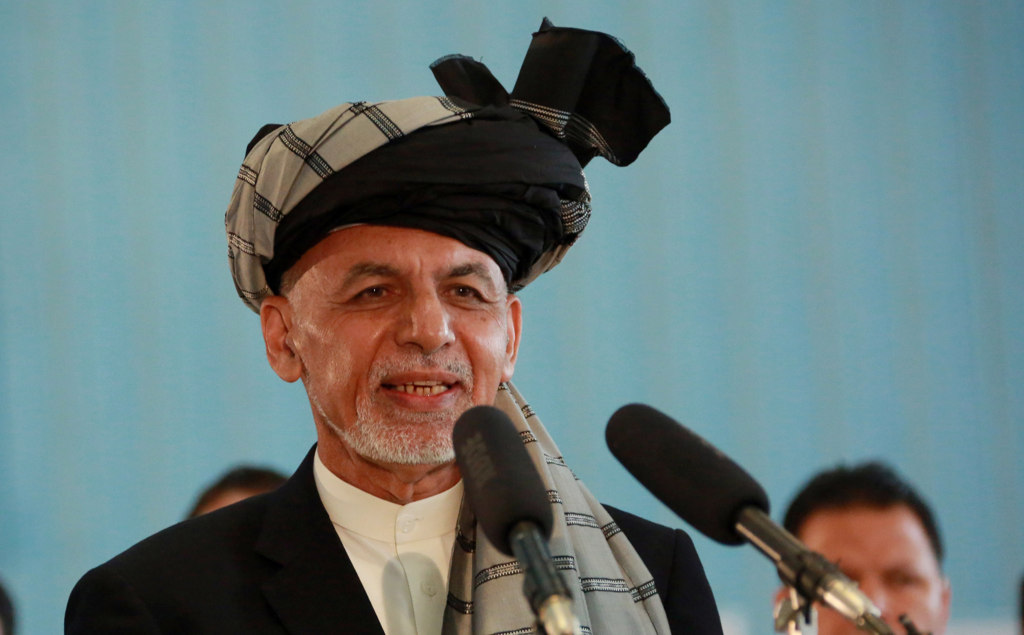US Secretary of State Antony Blinken has warned Afghan President Ashraf Ghani that his government may have to face a Taliban onslaught on its own if it fails to urgently consider proposals on accelerating the peace process, according to a report in Tolo News.
Blinken has in a letter to Ghani also made it clear the Biden administration continued to consider a “full withdrawal” of the roughly 2,500 US forces in the country by the May 1 deadline negotiated by the Trump administration.
Fearing that might lead to a worsening of the security situation and the Taliban making swift territorial gains, Blinken wrote to Ghani, “I am making this clear to you so that you understand the urgency of my tone regarding the collective work outlined in this letter.”
In this letter, Blinken calls for bringing the two sides together for a United Nations-facilitated conference with foreign ministers and envoys from India, Russia, China, Pakistan, Iran and the US, “to discuss a unified approach to supporting peace in Afghanistan”.
He urged Ghani or his "authoritative designees" to attend the meeting.
In a surprising move, the US has also sought assistance from Turkey to host a senior-level meeting of both sides “in the coming weeks to finalise a peace agreement.”
The secretary of state has called on the US special envoy Zalmay Khalilzad to share with both the Afghan government and Taliban written proposals to help accelerate discussions.
Confirming the developments, India’s External affairs minister S Jaishankar tweeted on Sunday, “Received a call from US Special Representative for Afghanistan Reconciliation Zalmay Khalilzad. Discussed the latest developments pertaining to peace talks. We will remain in touch.”
According to the “leaked” draft of proposals by the US in the Afghan media, for the transitional government and permanent cease-fire, Islam will be the official religion of Afghanistan and all citizens will be granted immunity as Afghanistan is common to all ethnicities and religions.
However, Ghani has reservations over the new US plan. He told the Afghan Parliament on Saturday that the transfer of power through elections was “a non-negotiable principle for us” and the constitution would determine the country’s future, rather than other people’s plans.
He also said, however, that he was “ready to discuss the holding of a free, transparent, and countrywide election under the management of the international community” and that “we can also talk about a date and reach a conclusion.”
Afghanistan National Security Adviser Hamdullah Mohib said the plan handed over to the government is not an official US government scheme for the country. He said the ongoing war in the country has foreign dimensions and that there is a need to address regional and international dimensions to achieve real peace and prevent post-peace deal threats.
“If the war in Afghanistan had been a civil war, it would not have been so difficult to end, but now the dimensions of the war are beyond Afghanistan’s borders, some nations persuade and promotes the conflict in the country,” he said in an oblique reference to Pakistan’s meddling in Afghanistan affairs. “Those who kill us and conduct car bombings or suicide bombings, they don’t have factories and it is evident where it is made,” he added.
Mohammad Naeem, a Taliban spokesman in Qatar, told Tolo news that they had also received a draft version of the Afghanistan peace agreement from the United States and were working on it.
But all is not well within the Ghani administration. Abdullah Abdullah, Chairman of the High Council for National Reconciliation said on Sunday that the republic’s shortcomings have weakened the government’s position with regards to the peace talks with the Taliban.
“Presenting plans should not be feared, instead they should be discussed, what should be lacking should be corrected, and if there are any problems, the problems should be highlighted,” Abdullah added.
The US peace envoy Zalmay Khalilzad has in the past week proposed the possibility of a Bonn-type UN-hosted conference that could cancel or sideline the intra-Afghan peace talks currently underway in Doha.
According to Afghanistan Analysts Network (AAN), at least ten political leaders including President Ashraf Ghani and his two deputies, Amrullah Saleh and Sarwar Danesh, Abdullah Abdullah, former president Hamid Karzai and factional leaders Muhammad Mohaqeq, Muhammad Karim Khalili, Abdul Rashid Dostum, Abdul Rab Rasul Sayyaf and Yunes Qanuni have got the draft of the plan.




















